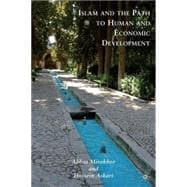
Note: Supplemental materials are not guaranteed with Rental or Used book purchases.
Purchase Benefits
What is included with this book?
Abbas Mirakhor is the first holder of the chair of Islamic Finance at the International Centre For Education in Islamic Finance (INCEIF) in Malaysia. He was born in the Islamic Republic of Iran, and attended Kansas State University, where he received his Ph. D. in economics in 1969. From 1969 to 1984, he taught at a number of universities in the U.S. and in Iran. He served on the staff of the IMF from1984 until 1990, as an Executive Director at the IMF from 1990 to 2008, and as Dean of the Executive Board for much of that time. He has received several awards, including the “Order of Companion of Volta” for service to Ghana, conferred by the President of Ghana in 2005; the Islamic Development Bank Annual Prize for Research in Islamic Economics in 2003, and the “Quaid-e Azam” star for service to Pakistan, conferred by the President of Pakistan in 1997. Dr. Mirakhor is the co-author of many books and articles in Islamic economics, including Essays on Iqtisad: Islamic Approach to Economic Problems (1989), Theoretical Studies in Islamic Banking and Finance (1987), Introduction to Islamic Finance: Theory and Practice (2007), and New Issues in Islamic Finance and Economics: Progress and Challenges (2009).
Hossein Askari is Iran Professor of International Business and International Affairs at the George Washington University. He served for two-and-a-half years on the Executive Board of the International Monetary Fund and was Special Advisor to the Minister of Finance of Saudi Arabia. During the mid-1980s he directed an international team that developed a comprehensive domestic, regional, and international plan for Saudi Arabia. He received all of his education at MIT. He was Assistant Professor at Tufts University and Professor at the University of Texas at Austin. He has written extensively on economic development in the Persian Gulf, Islamic economics and finance, international trade and finance, agricultural economics, oil economics, and economic sanctions. He is the author of numerous books and articles in professional journals, and his op-eds have appeared in all of the major newspapers in the United States.
| Foreword | p. ix |
| Preface | p. xiii |
| Acknowledgments | p. xvii |
| The Evolution of the Western Concept of Development | p. 1 |
| Development as Human Well-being | p. 27 |
| The Foundational Elements of Development in Islam | p. 53 |
| The Dimensions of Development in Islam | p. 91 |
| The Institutional Structure of Development in Islam | p. 129 |
| Conclusion | p. 179 |
| Notes | p. 185 |
| Glossary of Arabic Terms | p. 197 |
| Bibliography | p. 203 |
| Index | p. 219 |
| Table of Contents provided by Ingram. All Rights Reserved. |
The New copy of this book will include any supplemental materials advertised. Please check the title of the book to determine if it should include any access cards, study guides, lab manuals, CDs, etc.
The Used, Rental and eBook copies of this book are not guaranteed to include any supplemental materials. Typically, only the book itself is included. This is true even if the title states it includes any access cards, study guides, lab manuals, CDs, etc.